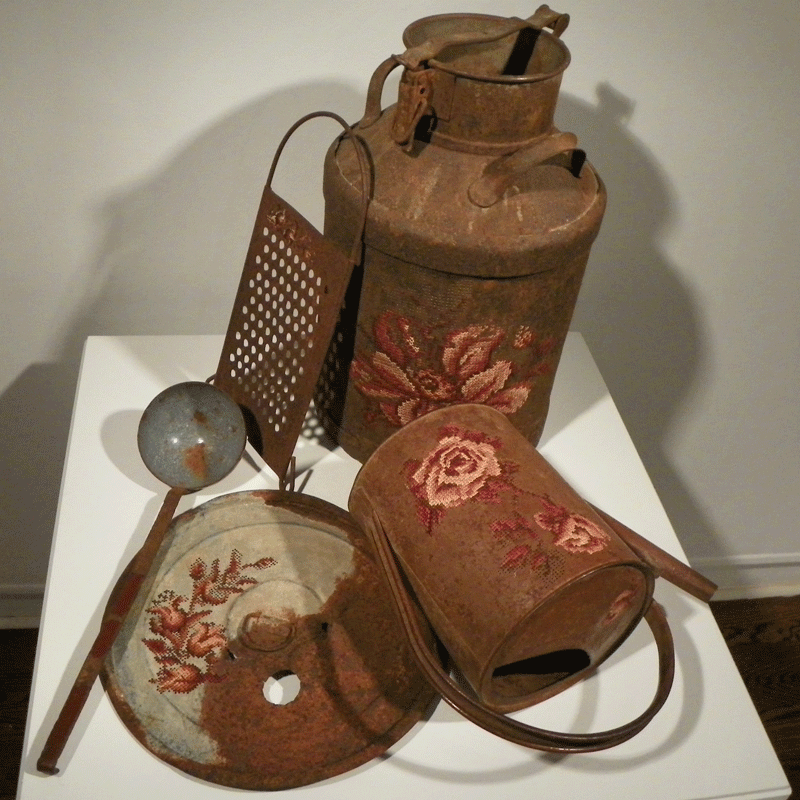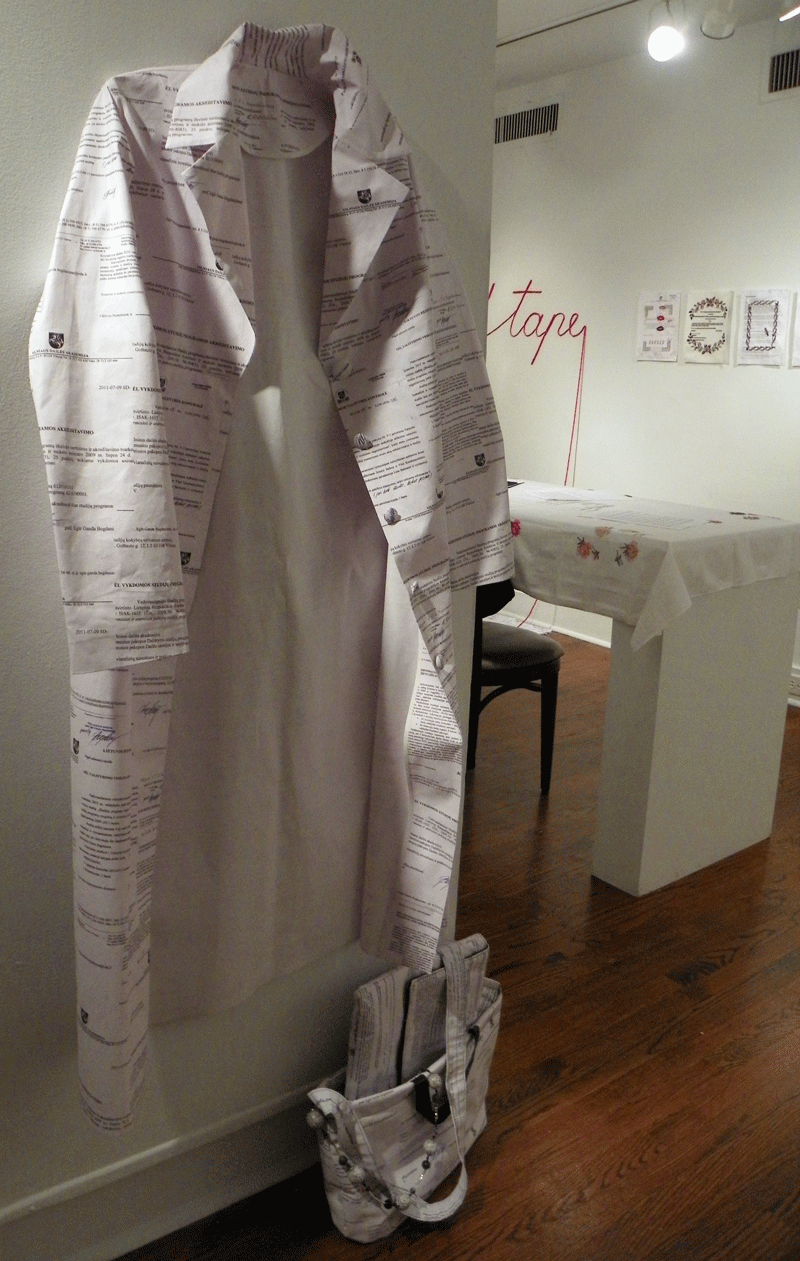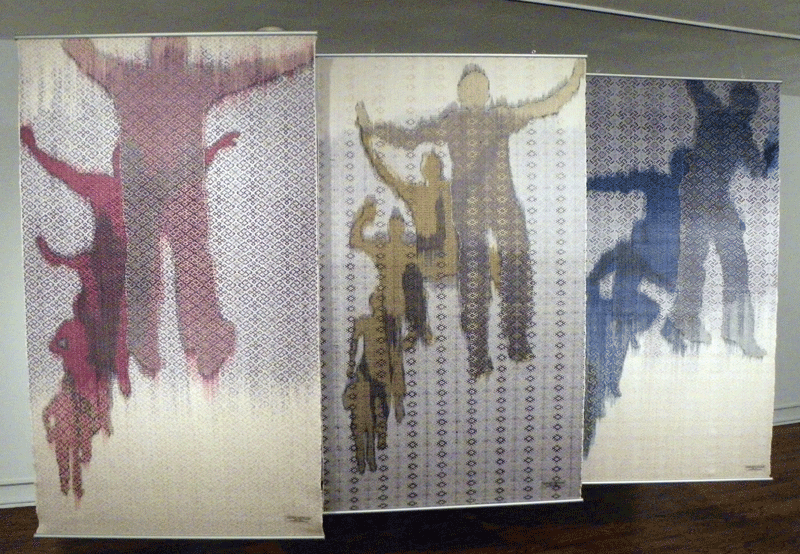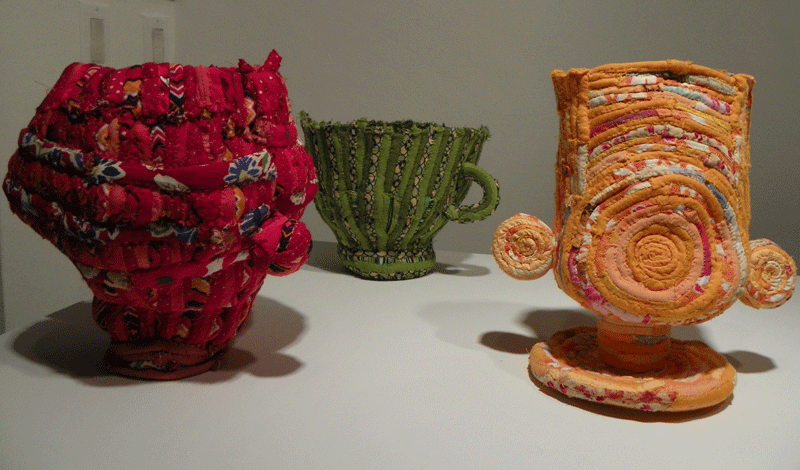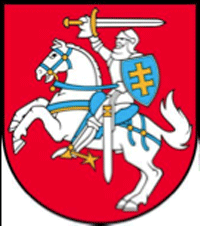
PHILADELPHIA, PA – The Lithuanian Embassy in the United States and the Lithuanian Honorary Consulate of Pennsylvania are pleased to announce a Lithuanian Festival of eventscelebrating the Lithuanian presidency of the Council of the European Union in the second half of 2013. In partnership with numerous Philadelphia organizations, fifteen events will give an unprecedented insight into Lithuania’s contemporary culture through its international award winners in art, design, jazz, photography, film, and cuisine; as well as world renowned scholars in politics, economics and history.
Lithuanian Ambassador to the U.S. Žygimantas Pavilionis noted, “Philadelphia has been kindly welcoming Lithuanians since the 19th century, and the current interest and enthusiasm is extraordinary. I am delighted that the ‘City of Brotherly Love’ is open to learning about our Baltic nation, and building bridges of insight and understanding in the world, celebrating that which is best in all people.”
This is the first Lithuanian Festival of this magnitude in Philadelphia, and is a keystone celebration of Lithuania’s EU presidency. All events are open to the public; for those events which require tickets or reservations, contacts are noted; events are listed below in chronologic order.
Living Foods Workshops
Location: Loreta’s Living Foods, 1291 Wisteria Dr., Malvern, PA. Time: Saturday, October 26, 2013, Noon-3 pm. Cost: $75 per person, reservations required, call 610-648.0241 or email lvainius@aol.com. See: www.loretaslivingfoods.com, www.livingann.com
The modern day living foods movement was founded by the late, Lithuanian born Ann Wigmore, who healed herself of cancer and countless others of myriad conditions by applying the Hippocratic maxim “Let food be your medicine.” Main Line resident Loreta Vainius studied with Ann Wigmore and many others, and is one of the foremost authorities today on the living foods lifestyle, which is growing in popularity all around the world. The medical and academic communities in Lithuania have embraced its concepts, constructed an Ann Wigmore memorial, and are integrating living foods into their research and commitment to creating the next paradigm of health care. At this workshop, participants will learn about organic raw, fermented and sprouted living foods, and learn how to sprout their own seeds at home, prepare energy soup, almond vegetable and herb pate, fruit “ice cream”, wheatgrass juice, and other healthy, revitalizing foods.
“Mugė” Lithuanian Community Fair
Location: Lithuanian Music Hall, 2715 East Allegheny Ave., Philadelphia Time: Saturday, November 2, Noon–9pm & Sunday, November 3, 2013, Noon–6pm Cost: Tickets can be purchased at the door, $5 adults and children under 12 free. See: www.lithuanianmha.org, for info call 215.739.4831
The annual “Mugė” Lithuanian Community Fair is organized by the Lithuanian American Community and features vendors selling handmade jewelry and ornaments, books, music and memorabilia; traditional Lithuanian savories and sweets including arguably the world’s best potato pancakes; Lithuanian folk and contemporary music, dancing, face-painting and games for children.
Lithuanian Inspired Dinner with Guest Chef Michael Laiskonis
Location: Sbraga, 440 S. Broad Street. Time: Wednesday, November 6; reservations accepted from 5pm–10pm. Cost: $75 per person for 5 course prix; reservations required, please call: 215.735.1913
Menu: Textures of Borscht Amuse Bouche; Herring with Smoked Potato, Pickled Parsnip and Carrot; Savory Lamb Dumpling “Cepelinai”; Roasted Duck with Chanterelle, Cabbage, and Fried Black Bread; Poppy Seed Beignet “Spurgos” with Huckleberry, Creme Fraiche Sorbet; Apple Confit with Rye Tuile, “Alus” Beer Ice Cream. See: www.sbraga.com, Facebook Michael Laiskonis.
Michael Laiskonis is trained in classic culinary traditions and has won international accolades from Guide Michelin, the James Beard Foundation, Bon Appetit and the New York Times among some. Proudly, he also celebrates his Lithuanian heritage, having traversed the Baltic nation, and creatively incorporated its traditions and flavors into totally modern new recipes. Kevin Sbraga, owner of the eponymous restaurant, has won his own share of laurels, most notably from Bocuse d’Or, Bravo’s Top Chef and Esquire magazine.
Contemporary Lithuanian Photography Lecture by Eglė Deltuvaitė
Location: The Print Center, 1614 Latimer Street, Philadelphia. Time: Thursday, November 7, 6pm. Cost: Free and open to the public, but reservations can be made by contacting Eli VandenBerg at 215.735.6090 x1 or evandenberg@printcenter.org See: www.printcenter.org, www.photography.lt,
“Lithuanian Photography in the 20th & 21st Centuries”
Lithuania has a vibrant and flourishing photographic culture, which embodies the European sensibility of inclusiveness and experimentation. Contemporary Lithuanian photography reveals the influence of classic traditions that originated with the Lithuanian school of the 1960s, as well as elements of the “aesthetics of boredom” and social landscapes of the 1980s, to the recent hybrids of neo-conceptualism, documentary and staged photography.
Eglė Deltuvaitė is one of the foremost photography curators in Lithuania. In 2008, she received her Master’s Degree in UNESCO Cultural Management and Cultural Policy from Vilnius Art Academy in Lithuania. She has worked with the Union of Lithuanian Art Photographers and coordinated numerous international cultural programs. She is currently acting director of the International Cultural Programme Centre, and director of the non-profit organization for photography and publishing projects “Culture Menu”.
The Print Center, founded in 1915, supports printmaking and photography as vital contemporary arts through exhibitions and related educational programs, art sales and an award-winning public school arts education program. This is the first time this lecture on Lithuanian photography will be presented in the US.
An Evening of Lithuanian Fare with Michael Laiskonis
Location: COOK, 253 S. 20th Street, Philadelphia. Time: Thursday, November 7, 7pm. Cost: $145 per person (includes class, dinner and beverage pairings); reservations required and will be accepted online after October 4 at www.audreyclairecook.com or 215.735.COOK
Menu: Borscht, Traditional and “Deconstructed”; Herring with Smoked Potato, Pickled Parsnip and Carrot; Savory Lamb Dumpling “Cepelinai”; Poppy Seed Beignet “Spurgos” with Huckleberry, Crme Fraiche Sorbet. See: www.audreyclairecook.com, Facebook Michael Laiskonis
Michael Laiskonis is trained in classic culinary traditions and has won international accolades from Guide Michelin, the James Beard Foundation, Bon Appetit and the New York Times among some. Proudly, he also celebrates his Lithuanian heritage, having traversed the Baltic nation, and creatively incorporated its traditions and flavors into totally modern new recipes. Opened in 2011, COOK is Philadelphia’s first state-of-the-art, fully equipped kitchen-classroom where guests enjoy chef tastings, culinary demonstrations and cooking classes in a beautiful, intimate setting. With the help of partners, Philadelphia Magazine and Foobooz, COOK provides a platform for learning, experimentation, menu tastings and private dining events focused on celebrating the craft of cooking, drinking and gathering at the table – a space where everyone from the aspiring novice chef to the most decorated master of cuisine can come share their love and knowledge of food and drink.
The Philadelphia Museum of Art Craft Show featuring Lithuanian Guest Artists
Location: The Pennsylvania Convention Center, 1101 Arch Street. Time: Thursday, November 7, and Friday, November 8, 11am-9pm; Saturday, November 9, 10am-6pm; Sunday, November 10, 10am-5pm. Cost: Tickets in advance, online at www.pmacraftshow.org; and at the door $15 per person. See: www.pmacraftshow.org; for info call 215.684.7930
The Philadelphia Museum of Art Craft Show is one of the largest and most highly regarded professional craft shows in the world. During the four day event, nearly 18,000 people attend. The annual show presents 195 of the finest American artists are selected from over 1200 applicants, and 23-26 artists are selected from one single country each year. Shining the spotlight on Lithuania during its current presidency of the European Union, 23 international award winning Lithuania artists will offer jewelry, ceramics, textile, glass, leather, furniture and paper. This is the first time a show of Lithuanian crafts and design of this scope has been presented in the United States.
LITHUANIAN ARTISTS:
CERAMICS — Daiva Ložytė (www.facebook.com/DaivaLozyteCeramics), Nomeda Marčėnaitė (www.nomedos.lt), Dainius Strazdas (www.pottery.lt), Rūta Šipalytė (www.sipalyte.blogspot.com)
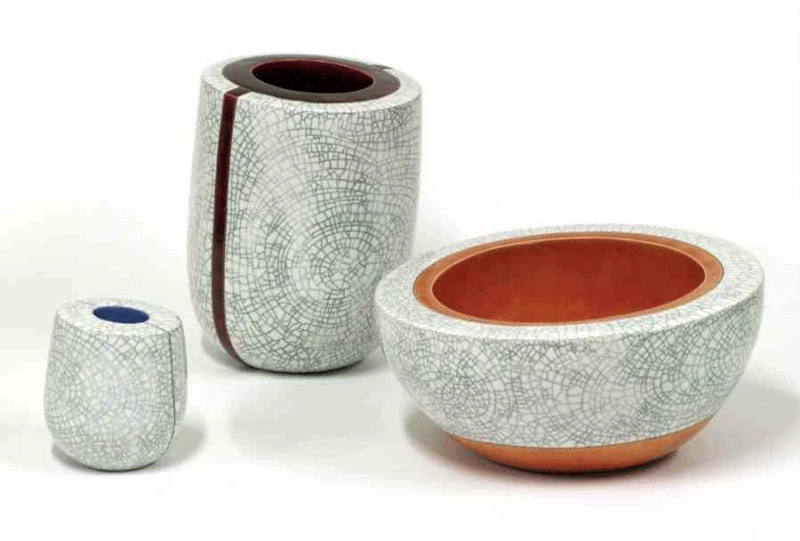
TEXTILES – “Baltos Kandys“ or “White Moths” Artistic Group (www.baltoskandys.com), Danguolė Brogienė, Severija Inčirauskaitė-Kriaunevičienė (www.severija.lt), Indra Dovydėnaitė (www.indradovydenaite.lt)
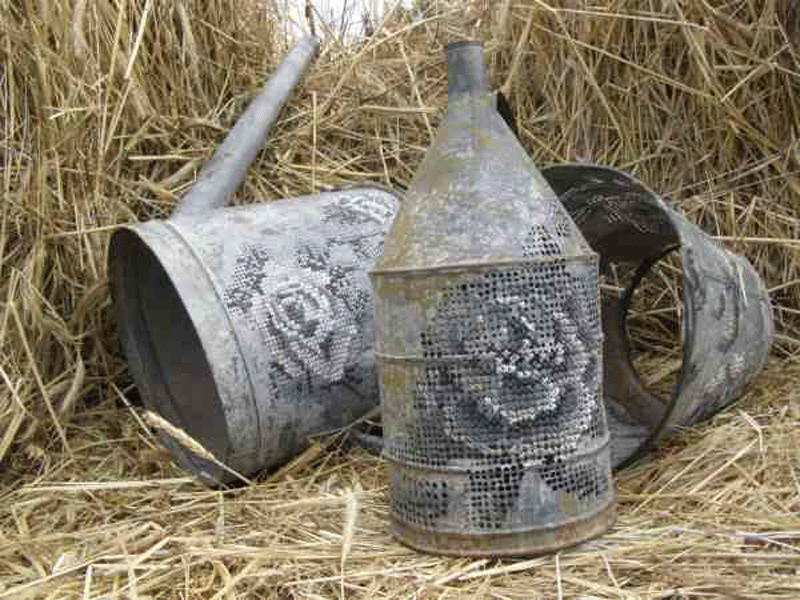
JEWELRY — Ugnė Blažytė and Danas Tamašauskas (www.ugneblazyte.com), Laura Dailidėnienė (www.daili.lt), Tadas Deksnys, Ingrida Didika (www.ingridadidika.com), Darijus Gerlikas (www.darijaus.com & www.cs-ad.co.uk), Sandra Malaškevičiūtė (www.spinkijewellery.com), Šarūnė Vaitkutė and Dainius Narkus (www.gauau.lt)
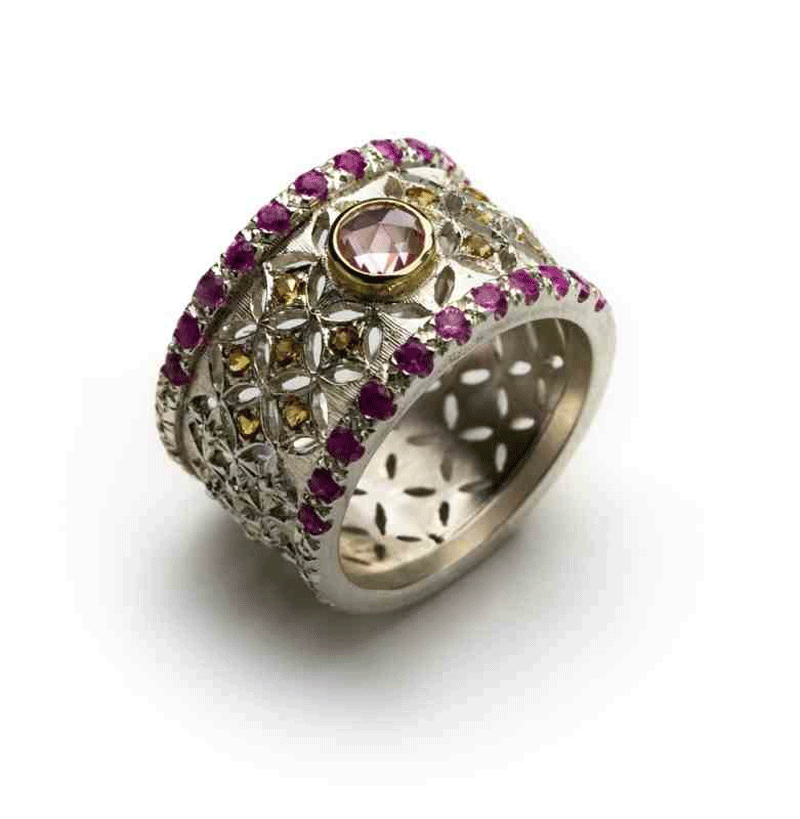
GLASS — Viktoras Dailidėnas (www.dailidenas.lt), Remigijus Kriukas (www.glasremis.lt), Lina Austė (www.linaglass.com)
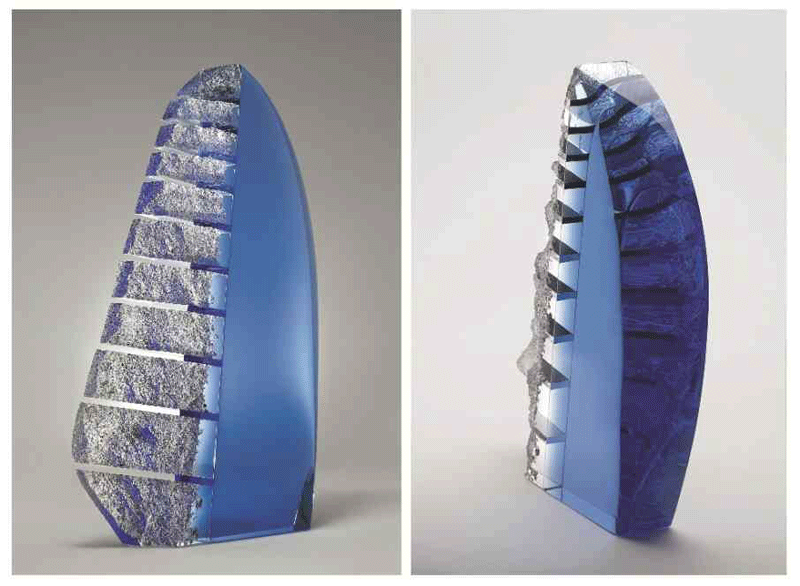
LEATHER — Virginija Giniotytė (www.virginiote.com), Dalia Marija Šaulauskaitė (www.dmsaul.com), Aušra Petroškienė
PAPER — Klaidas Navickas (www.klaidaspapercuts.lt)
FURNITURE — Indra Marcinkevičienė (www.interioraddictions.com)
Psilicone Theatre performs “Greenhouse Stories”
Location: Friends Select School, 17th & Benjamin Franklin Parkway. Time: Friday, November 8, 10:15am-11:15am. Cost: Free, special performance for Friends Select students; limited additional seating available, reservations required for all guest lynat@friends-select.org or call 215.561.5900. See: www.friends-select.org, www.aukse.lt
Psilicone Theatre’s actors are miniature puppets, made from silicone, animated by pressing them between clear plates in breakneck speed under a projector which magnifies the image onto a screen. They are mixed with drawings, texts, and liquid pigments to create rich visual effects. In “Greenhouse Stories” the artist Auksė Petrulienė worked with the Kaunas Botanical Gardens to create characters from molds of actual plants, telling a live, huge and colorful ecological tale of extinction and conservation, mystery and wonder. Friends Select School is a PK through 12, college preparatory Quaker school in Center City Philadelphia that fosters a diverse, globally-aware school culture and curriculum. Students learn in a safe, courteous community, so there’s space to explore new ideas fearlessly. Hands-on learning and adventures beyond the classroom—in art and science rooms, in the city of Philadelphia, and beyond—make learning an active, engaging experience. The mission is to cultivate curiosity and to prepare every student successfully for an engaging and fulfilling life.
“Lithuanian Crafts as an Expanded Field: Challenging Stereotypes” Lecture by Virginija Vitkiene
Location: The Philadelphia Museum of Art Craft Show at the Pennsylvania Convention Center, 1101 Arch St. Time: Friday, November 8, 6:30pm-7:15pm. Cost: Open only to members/supporters of the Young Friends of the Philadelphia Museum of Art; to contribute $50 and become a member/supporter, and reserve a ticket please contact: youngfriends@philamuseum.org or call 215.684.7858 See:www.philamuseum.org/youngfriends
Virginia Vitkiene is an art critic and editor, curator, director of the Arts Centre at Vytautas Magnus University, and artistic director of the Kaunas Biennial international textile exhibition. Her lecture will offer an overview of current trends in Lithuanian craft and design, and provide a context for understanding the country’s unique artistic sensibility. The Young Friends is a dynamic group of art enthusiasts, committed to supporting the Philadelphia Museum of Art. Members enjoy a diverse schedule of programs including, engaging social events, educational lectures and tours, art-inspired excursions, and enrichment activities.
Don Russell aka “Joe Sixpack” leads a Handcrafted and Lithuanian Beer Tasting
Location: The Philadelphia Museum of Art Craft Show at the Pennsylvania Convention Center. 1101 Arch Street. Time: Friday, November 8, 7pm. Cost: $45 per person, includes admission to the Craft Show, advance reservations required, can be made online at www.pmacraftshow.org, or call 215.684.7930 See: www.pmacraftsow.org, www.joesixpack.net
Don Russell is an award-winning Philadelphia writer, and as “Joe Sixpack” is America’s bestknown beer journalist. He has traveled and discovered beers all around the world, including Lithuania. As founder and executive director of Philly Beer Week, he produces the largest beer celebration of its kind with over 1,000 events. The New York Times named Lithuania one of the top places to visit in 2013, all because of its beer.
Kestutis Vaiginis Quintet Lithuanian Jazz Concert
Location: The Philadelphia Museum of Art Grand Staircase, 2600 Benjamin Franklin Parkway Time: Friday, November 8, 5:45pm -6:45pm and 7:15pm-8:15pm. Cost: Free with museum admission (museum admission: $20 for adults, $18 for seniors (65+), $14 for students (with valid ID) and youth (ages 13-18), free for children ages 12 and under and members; you can purchase a ticket at the museum, or online www.philamuseum.org/artafter5/ or call 215.763.8100. See: www.philamuseum.org/artafter5/, www.kestutisvaiginis.com
Kestutis Vaiginis Quintet Musicians:
Kęstutis Vaiginis – saxophone
David Berkman – piano
Alex Sipiagin –trumpet
Ed Howard – bassist
McClenty D. Hunter Jr. – drums
Kęstutis Vaiginis is arguably one of the most talented jazz musicians of his generation, playing soprano and tenor saxophones as well as the flute. Recognized for his clear and controlled sound, lyricism and passion, he rapidly established his role in the contemporary international jazz scene, and performing with stars like Barbara Dennerlein, Daniel Messina, Hernan Romero, David Berkman, Randal Corsen, Bilal Karaman, Burak Bedikyan, Herbie Kopf, Joonas Haavisto, giving concerts all around the world, winning awards and applause. Kestutis Vaiginis is performing in the Philadelphia Museum of Art’s popular Art After 5 program, a unique evening of entertainment, light supper by Starr Events, and cocktails, turning the Grand Stair Hall into an intimate and extraordinary cabaret.
Meet the Artists
Location: The Lithuanian Consulate, 410-412 S. 16th Street, Philadelphia. Time: Saturday, November 9, 7:30pm-10pm. Cost: $20 per person, advance reservations required and attendance is limited (no tickets sold at the door), please contact l.kucas@att.net or call 610.496.8146. See: www.pmacraftshow.org
The Lithuanian American Community of Philadelphia is pleased to welcome the acclaimed artists from Lithuania who are exhibiting at the Philadelphia Museum of Art Craft Show. These 23 artists serve as cultural ambassadors for their country, and are feted this evening for theirextraordinary dedication and achievements. The Lithuanian Consulate in Pennsylvania was established in 2010, by designation of the Lithuanian Minister of Foreign Affairs.
Lithuanian Jewish Heritage Symposium
Location: National Museum of American Jewish History, 101 S. Independence Mall East. Time: Sunday, November 10, Noon-5pm. Cost: Free and open to the public, reservations required and can be made by contacting rolandas.kacinskas@urm.lt or calling 202.234.5860 ext.118
This conference offers insights into Lithuanian Jewish culture, seeks to throw light on losses during World War II, and attempts to assess conditions for preserving and reviving Jewish heritage in today’s Lithuania and among Lithuanian Jews worldwide. This event is organized by the Lithuanian Embassy, the Israeli Consulate, the American Jewish Committee and the National Museum of American Jewish History. Speakers include: Lithuanian Vice Minister of Foreign Affairs Nerijus Germanas; Prof. Šarūnas Liekis of Vytautas Magnus University; Prof. Antony Polonsky of Brandeis University; Deputy Director of the Institute of Lithuanian History Darius Staliūnas; Prof. Eliyahu Stern of Yale University; Prof. Emeritus Saulius Sužiedelis of Millersville University; Associate Prof. Adam Teller of Brown University; and Antanas Zabulis, founder of The Northern Jerusalem Project.
Lithuanian Festival 2013 events are organized in celebration of Lithuania’s Presidency of the Council of the European Union during the second half of 2013. Lithuanian Festival 2013 events have been organized by the Lithuanian Embassy in the United States, the Lithuanian Honorary Consul to Pennsylvania and the International Cultural Programme Center.
Lithuanian Festival 2013 events are made possible through the support of the Ministry of Culture of the Republic of Lithuania, Enterprise Lithuania, the Maersk Line, Limited, the Bajorunas/Sarnoff Foundation, and Ikea. Special thanks to all of the partnering venues who are participating in Lithuanian Festival 2013 and without whose interest and collaborative spirit these events would not be possible: The American Jewish Committee, The Archdiocese of Philadelphia, Birzu Alus, The Brothers Vilgalys Baltic-Style Spirits, The Consular Corps Association of Philadelphia, The Consulate General of Israel, COOK, Drexel University Antoinette Westphal College of Media Arts & Design, Exelon, Friends Select, Global Philadelphia, Independence Visitor Center, International House Philadelphia, Knight International LLC, The Lithuanian American Community, Philadelphia Chapter, Loreta’s Living Foods, The National Museum of American Jewish History, Parkway Realty Services, The Philadelphia Museum of Art Art After 5 Program, The Philadelphia Museum of Art Craft Show, The Print Center and Sbraga.
Background:
In 1429, Lithuania, then a Grand Duchy and the largest country in Europe, organized its first summit of European leaders. Lithuania’s current presidency of the Council of the European Union comes after centuries of strife and occupation. In 1990, Lithuania declared its independence from the Soviet Union, and in 1993, a partnership was established with the Pennsylvania National Guard as part of a federally mandated State Partnership Program.
Lithuania was invited to join the EU and NATO in 2002. For more info, please see www.eu2013.lt
The Commonwealth of Pennsylvania boasts one of the largest Lithuanian diaspora groups in the world, second only to Illinois. Most Lithuanians came to the U.S. during various wars and occupations, as Honorary Consul Bard’s own parents did in 1949. Bard’s first trip to Lithuania was in 1988, when she led a group of US culinary journalists and chefs through the Soviet Union; restaurateur activist Judy Wicks documented the event and restaurant exchange with Lithuania’s Stikliai Hotel in a chapter of her book, “White Dog CafŽ Cookbook: Multicultural Recipes and Tales of Adventure from Philadelphia’s Revolutionary Restaurant.” Bard was named Honorary Consul of the Republic of Lithuania to the Commonwealth of Pennsylvania in 2010.
For further information contact: Evaldas Stankevičius. Cultural Attache, Lithuanian Embassy in Washington, DC. culture.us@urm.lt. T: 202-234-5860 ext. 113
Krista Butvydas Bard, Honorary Consul of the Republic of Lithuania to the Commonwealth of Pennsylvania, krista@honoraryconsul.lt, kbard@kristabard.com, 215.735.7110
More information at Lithuanian Festival 2013
Read DoNArTNeWs review of LTextile
Like DoNArTNeWs Philadelphia Art News Blog on facebook
Follow the new DoNArTNeWs.com
Follow DoN on Twitter @DoNNieBeat58
DoNArTNeWS on Tumblr
DoN Brewer on Pinterest
@donniebeat on Instagram
Affiliate Marketing [disclosure page] Shop on-line and help support DoNArTNeWs
Donate via safe and secure PayPal in the sidebar.








